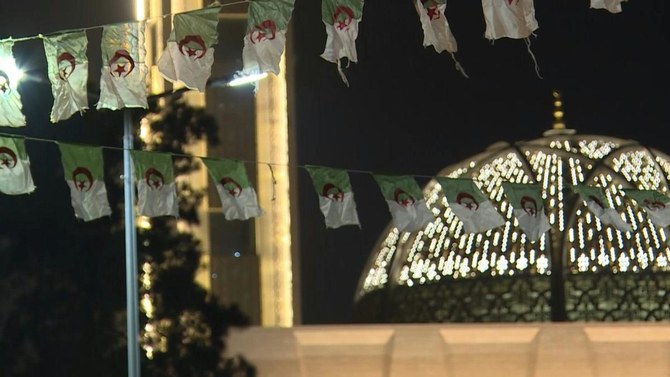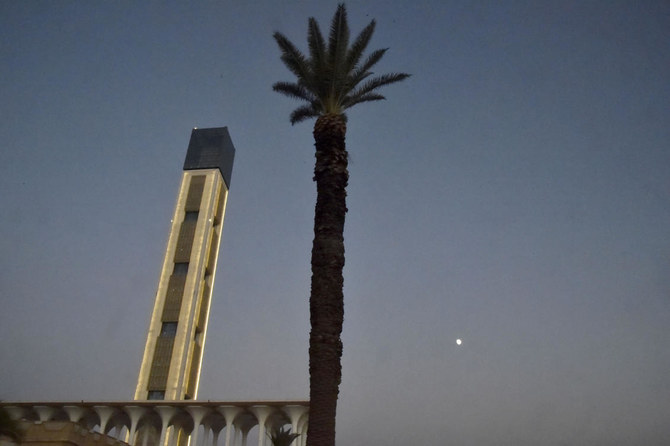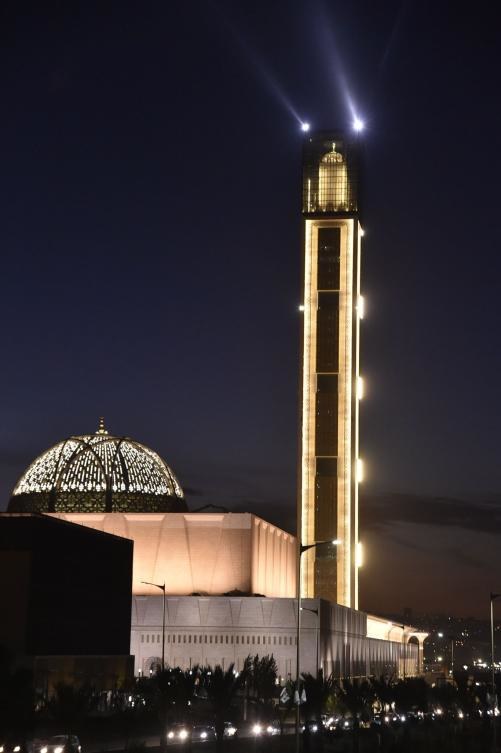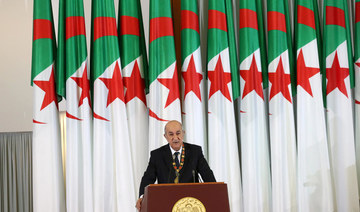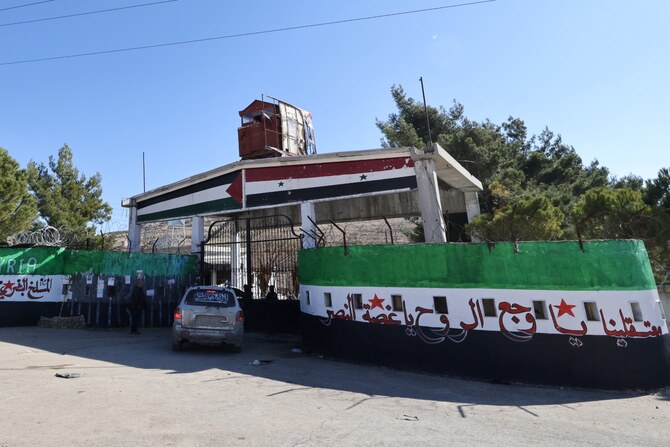ALGIERS: Algeria’s Grand Mosque, the world’s third-biggest and Africa’s largest, will host its first public prayers on Wednesday, a year and a half after construction was completed.
Known locally as the Djamaa El-Djazair, the modernist structure extends across 27.75 hectares (almost 70 acres), and is smaller only than the two mosques in Makkah and Madinah, Islam’s holiest sites, in Saudi Arabia.
To its critics, the mosque is a vanity project and a symbol of the megalomania of former autocrat Abdelaziz Bouteflika, who was forced out in April last year after mass street protests against his two-decade-long rule.
President Abdelmadjid Tebboune had been expected to inaugurate the mosque’s prayer hall — whose maximum capacity is 120,000 — at the event on Wednesday, the eve of the birthday of the Prophet Muhammad.
But his presence was in doubt after his office announced the day before that he had been hospitalized.
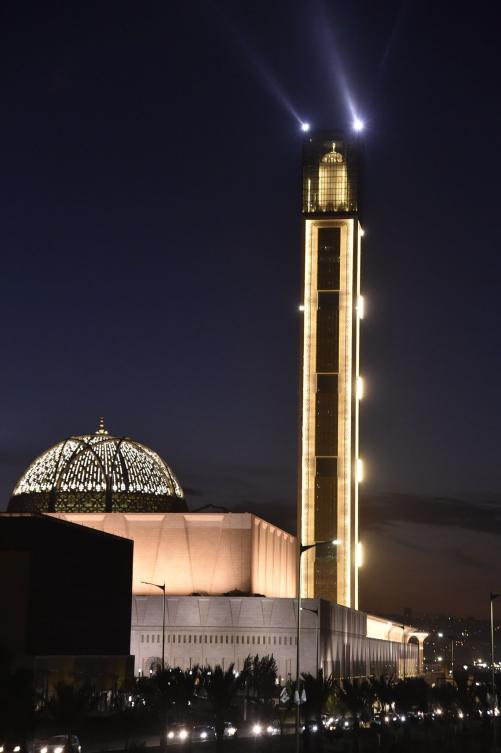
Tebboune had gone into self-isolation last week following suspected coronavirus cases among his aides, but the presidency said Tuesday that Tebboune’s “state of health does not raise any concern.”
It was unclear how many people would be allowed to attend the prayers amid the novel coronavirus pandemic.
The mosque’s interior, in Andalusian style, is decorated in wood, marble and alabaster.
It features six kilometers (3.7 miles) of Qur'anic text in Arabic calligraphy, along with turquoise prayer mats.
The mosque aims to be an important theological, cultural and research center, and the complex includes a library that can host a million books.
Featuring geometric architecture, it also boasts the world’s tallest minaret — 267 meters (875 feet) — fitted with elevators and a viewing platform that looks out over the capital and the Bay of Algiers.
The tallest such structure had previously been a 210-meter minaret in the Moroccan city of Casablanca.
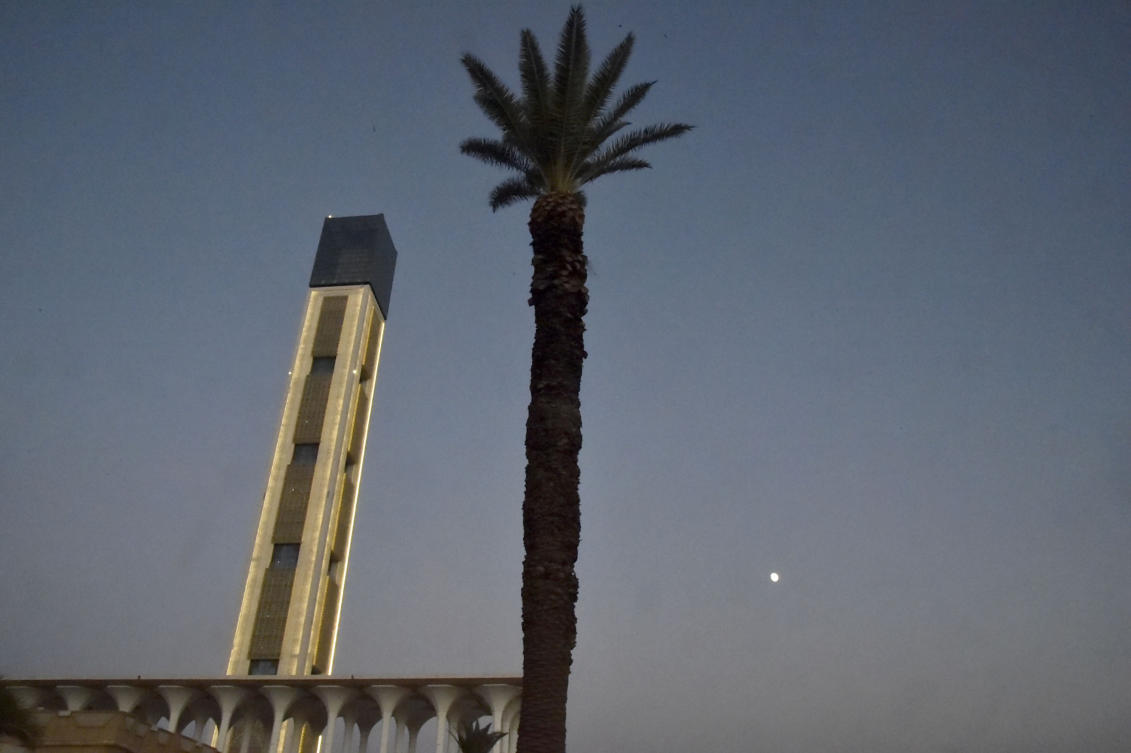
But it has all come at a cost of over $1 billion in public money, according to finance ministry figures.
The seven-year construction work was completed in April 2019, three years behind schedule, and the company in charge, China State Construction Engineering (CSCEC), brought in laborers from China.
“There is a mosque in almost every neighborhood,” said Said Benmehdi, an Algiers resident in his seventies, whose two children are both unemployed.
He told AFP bitterly that he would have preferred for the “state to build factories and let young people work.”
Five imams preside over the mosques and five muezzins are responsible for conducting the call to prayer, said Kamel Chekkat, a member of Algeria’s ulema association of Muslim scholars.
He told AFP that the mosque would be tasked with “regulating and harmonizing fatwas with Algerian life.”
A multidisciplinary study and research group will examine the Qur'anic text and “its keeping with the times and above all, with science,” he added.
“The idea is that the Grand Mosque will be a place for combatting all types of radicalism, religious and secular,” Chekkat said.
But sociologist Belakhdar Mezouar said the mosque “was not built for the people.”
It is the “work of a man (Bouteflika) who wanted to compete with neighboring Morocco, make his name eternal and put this construction on his CV, so he could get into paradise on judgment day,” he said, adding that his opinion was widely shared.
Nadir Djermoune, who teaches town planning, criticized the “ostentatious choice” of such mega projects at a time when he said Algeria needed new health, education, sporting and recreational facilities.
The mosque is “isolated from the real needs of the city in terms of infrastructure,” he said.
The most positive point, he said, was its modernist concept, which “will serve as a model for future architectural projects.”


